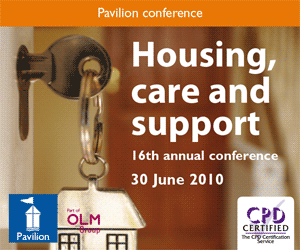
Online access is now Free. If you have an existing subscription click here for more information
Lunchtime news Tuesday 21 October 2023
22/10/2023
The gap between rich and poor in the UK has decreased ‘remarkably’ since 2000, a survey by the Organisation for Economic Cooperation and Development (OECD) has found. However, while ‘the poor have been getting richer more rapidly than the rich’ the UK still had one of the highest levels of income inequality in the developed world. The main reason that fewer people were living in poverty, the report said, was higher employment rather than the redistribution of wealth.
However, the number of children living in poverty has risen for a second time this year. The amount of children in poverty rose by 100,000 in 2006/07 to 2.9 million before housing costs, while the level of pensioner poverty increased for the first time since 1998, rising by 300,000 to a total of 2.5 million. These numbers increase once costs such as rent and mortgages are taken into account; with the number of children living in poverty up by 100,000 to 3.9 million. The increase may threaten the government’s target of halving child poverty by 2010.
Work and pensions secretary James Purnell has ordered an enquiry into a local housing allowance loophole that pays local councils to house people in properties ‘they would not be able to afford if they were in work’. Mr Purnell said new rules for claiming housing allowance should include a cap in rent for houses with five bedrooms or more by next April; and he wants council leaders to be given the power to move a family after a year if a cheaper home becomes available. Mr Purnell also ordered that the council finds a cheaper home for an Afghan family of eight, living in a house costing the council more than £12,000 a month in rent.
In London, two of the main venues at the Olympic Park may have to be nationalised if they are to continue being built. The £1 billion athletes’ living accommodation and the £400 million media centre are both facing funding shortages due to a lack of investment and the government is resisting allocating more money. So far, no money has been guaranteed from the private sector or housing associations who were expected to fund up to £850-£900 million needed to complete the Olympic village.
Meanwhile some of Britain’s biggest companies have deferred paying business taxes, creating a £2.5 billion ‘black hole’ in council budgets. Many businesses are rescheduling their payments, but around 8,000 businesses have closed since January, resulting in a cashflow problem for councils that may cause higher council tax bills or cuts in services for residents. Local authorities receive more than £17.5 billion from businesses.
Analysts fear that more money will be taken out of the housing market than is put in by the end of the year. Figures from the Council of Mortgage Lenders showed a 10 per cent decline from August, and a year on year drop of 42 per cent in gross mortgage lending.
First-time buyers are being warned that private sector shared equity schemes do not offer the same level of protection as government funded schemes. Notting Hill Housing, a housing association, said that private schemes are designed to lure in the most vulnerable sector of the market, and can leave buyers severely out of pocket once the initial deals have run their course.
Previous article: Lunchtime news Monday 20 October 2023
Next article Lunchtime news Wednesday 22 october 2023
All tags
Blog archive
2010
2009
- December 2009
- November 2009
- October 2009
- September 2009
- August 2009
- July 2009
- June 2009
- May 2009
- April 2009
- March 2009
- February 2009
- January 2009
2008
- December 2008
- November 2008
- October 2008
- September 2008
- August 2008
- July 2008
- June 2008
- May 2008
- April 2008
- March 2008
- February 2008
- January 2008
2007
- December 2007
- November 2007
- October 2007
- September 2007
- August 2007
- July 2007
- June 2007
- May 2007
- April 2007
- March 2007
- February 2007
- January 2007



No comments have been made on this article yet.